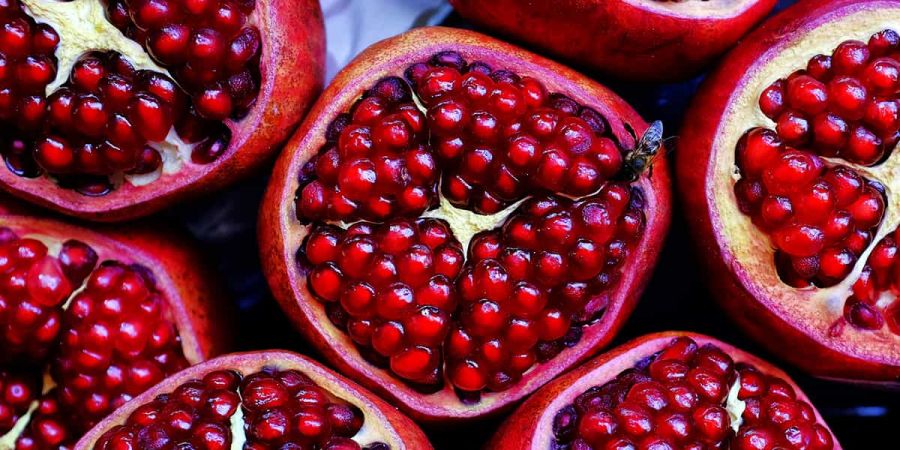

How do pomegranates work?
Round pomegranates have reddish-yellow, firm, and glossy skin. One can be split apart to reveal the arils, which are jewel-like interior seeds that can be consumed raw or juiced.
Check out some of our favourite pomegranate dishes, such as our pomegranate braised pork belly or our chopped herb and pomegranate salad, as well as our whole collection of health benefit guidelines.
nutritional advantages
An 80g serving offers:
ADVERTISEMENT 174 KJ/41 Kcal
1 g of protein
0.2g Fat
Carbohydrates 9.4 g
Fibre, 3.6g
Potassium 192 mg
Vitamin C 10 mg
A serving size of 80g counts as one of your daily five. Find out what else contributes to your 5-a-day in our printable infographic.
health-benefits-of-pomegranate-pomegranate-chicken-cfd90a3
top five health advantages
1. Might lower risk of developing heart disease
Richness of pomegranateAntioxidant capabilities in protective substances are advantageous for health because they shield not only our cells from deterioration but also substances like cholesterol. This indicates that consistently consuming pomegranate may be useful in lowering the risk of atherosclerosis.
It may help lower blood pressure, according to a 2013 study that looked at the effects of eating 150ml of pomegranate juice daily for two weeks on patients with high blood pressure (hypertension). Pomegranate juice consumption may enhance heart blood flow in those with coronary heart disease, according to a 2005 study. Before researchers can determine a direct correlation, these were small studies, thus replication of the results with bigger sample numbers is required.
2. Might enhance bone healthPomegranate eating appears to have a preventive effect on bone loss in rodents, according to two research from 2014 and 2015, however this has not yet been shown in human trials. According to the research, menopausal women in their mid-life may benefit notably from pomegranate juice and seed extract.
3. Might enhance athletic prowess
According to a 2016 study, the antioxidant content of pomegranates and pomegranate juice may help with muscle rehabilitation and post-weight training discomfort. Pomegranate extract enhanced performance for sports involving intermittent running within 30 minutes of consumption, according to another study.
4. Possibility of anti-inflammatory effects
Pomegranates are three times more antioxidant-active than red wine and green tea, thereforeIt would be reasonable to anticipate good anti-inflammatory properties. Numerous studies have looked into the potential anti-inflammatory abilities of pomegranates. While other studies have examined the potential anti-inflammatory effects of one antioxidant compound, called punicic acid, which is found in pomegranate seed oil on breast cancer cells, initial research has suggested that the fruit may help fight inflammation in the gut. According to a study published in the Journal of Research in Medical Sciences, type 2 diabetes patients who drank pomegranate juice daily after a 12-week period had lower blood levels of inflammatory markers.
Studies are also being conducted to look at how pomegranate juice affects people with covid-19 who are hospitalised and have inflammatory markers. Despite all of these studiesare encouraging, more studies must be conducted before pomegranate can be said to have specific anti-inflammatory properties.
5. Might enhance memory
Pomegranates and their juice have not yet been extensively studied for their potential effects on cognitive function. In a short study, participants with minor age-related memory issues were instructed to consume 225 millilitres of pomegranate juice per day. After four weeks, verbal and visual skills showed improvement. Pomegranate juice may help mice's brains, according to other studies. Again, more thorough research is required before pomegranates and memory can be linked to health benefits.
